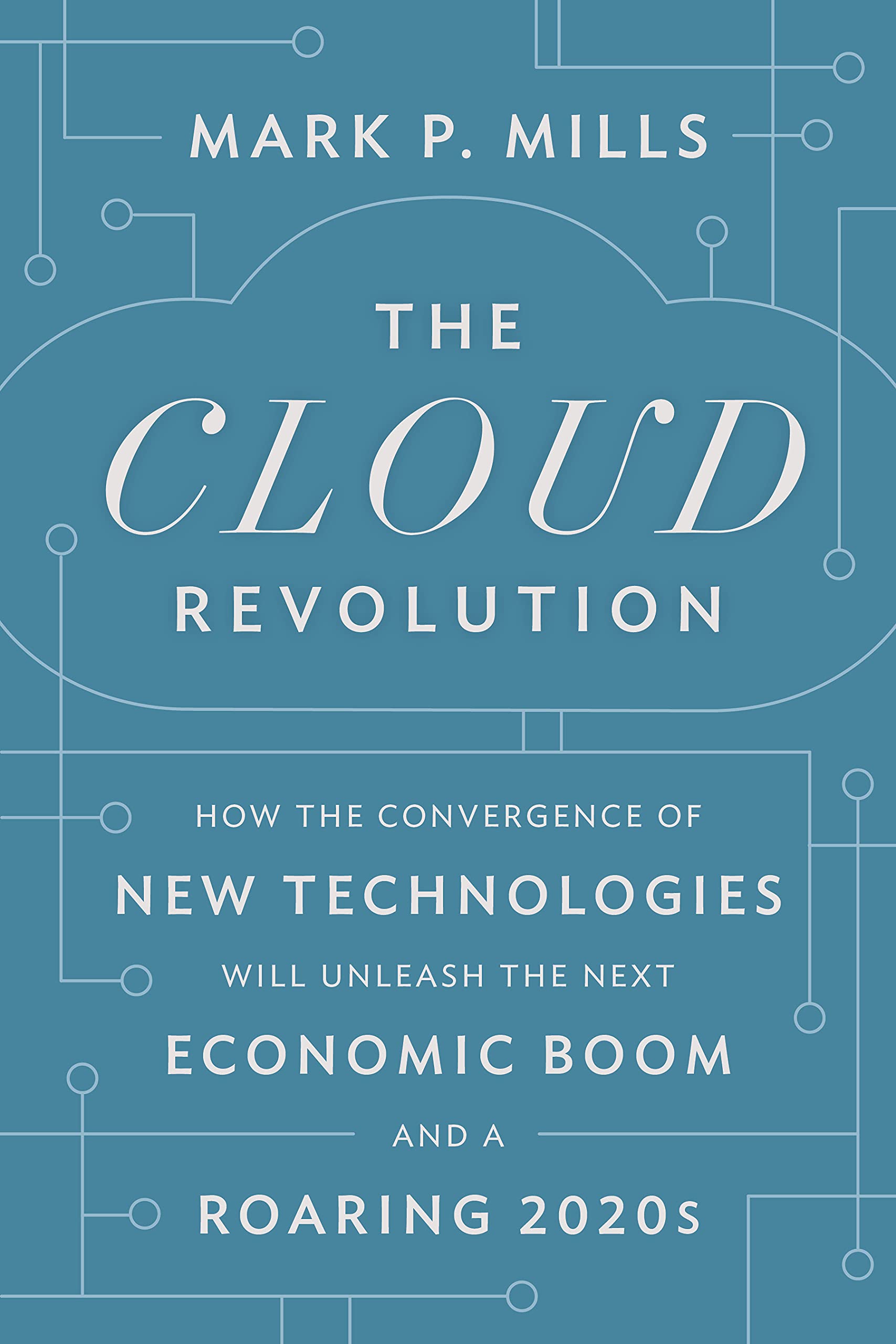Director, Publicity
(646) 839-3387
mjacob@manhattan-institute.org
About the Book
The conventional wisdom on how technology will change the future is wrong. Mark Mills lays out a radically different and optimistic vision for what’s really coming.
The mainstream forecasts fall into three camps. One considers today as the “new normal,” where ordering a ride or food on a smartphone or trading in bitcoins is as good as it’s going to get. Another foresees a dystopian era of widespread, digitally driven job- and business-destruction. A third believes that the only technological revolution that matters will be found with renewable energy and electric cars.
But according to Mills, a convergence of technologies will instead drive an economic boom over the coming decade, one that historians will characterize as the “Roaring 2020s.” It will come not from any single big invention, but from the confluence of radical advances in three primary technology domains: microprocessors, materials, and machines. Microprocessors are increasingly embedded in everything. Materials, from which everything is built, are emerging with novel, almost magical capabilities. And machines, which make and move all manner of stuff, are undergoing a complementary transformation. Accelerating and enabling all of this is the Cloud, history’s biggest infrastructure, which is itself based on the building blocks of next-generation microprocessors and artificial intelligence.
We’ve seen this pattern before. The technological revolution that drove the great economic expansion of the twentieth century can be traced to a similar confluence, one that was first visible in the 1920s: a new information infrastructure (telephony), new machines (cars and power plants), and new materials (plastics and pharmaceuticals). Single inventions don’t drive great, long-cycle booms. It always takes convergent revolutions in technology’s three core spheres―information, materials, and machines. Over history, that’s only happened a few times.
We have wrung much magic from the technologies that fueled the last long boom. But the great convergence now underway will ignite the 2020s. And this time, unlike any previous historical epoch, we have the Cloud amplifying everything. The next long boom starts now.
Praise
“Entertaining and educating while linking history, technology and unusual savvy, Mark Mills’s The Cloud Revolution shows an unprecedented upcoming convergence of technological forces from whose acquaintance you can’t help but be a much better investor.”
―Ken Fisher, founder and executive chairman of Fisher Investments, multi-national columnist, and bestselling author
“Makes the exciting―and convincing―case that we’re on the cusp of a fantastic new era of technological breakthroughs that will vastly enrich our lives. What a timely―and much needed―antidote to the debilitating pessimism that now reigns.”
―Steve Forbes, chairman and editor-in-chief of Forbes Media
“A compelling case for optimism: An economic boom in the immediate future driven by the convergence of three evolving technologies aided by the Cloud. Tons of verifiable data support the case… An antidote to the doomsday scenarios that seem to tint everything today.”
―Julio M. Ottino, dean of the Robert R. McCormick School of Engineering and Applied Sciences, Northwestern University
“This is a book about how the future will work. The ‘20s’ will roar because of the new economy made possible by the Cloud. ‘Data is the new oil’ not because it replaces oil but because of the wide range of new industries and innovation it will spawn. This is a book that one will learn much from―and be amazed by.”
―Daniel Yergin, vice chairman of IHS Markit, and Pulitzer Prize-winning author of The Prize and The New Map: Energy, Climate, and the Clash of Nations
About the Author
Mark P. Mills is a senior fellow at the Manhattan Institute and a faculty fellow at Northwestern University’s McCormick School of Engineering and Applied Science, where he co-directs an Institute on Manufacturing Science and Innovation. He is also a strategic partner with Montrose Lane (an energy-tech venture fund). Previously, Mills cofounded Digital Power Capital, a boutique venture fund, and was chairman and CTO of ICx Technologies, helping take it public in 2007. Mills is a regular contributor to Forbes.com and is author of Digital Cathedrals (2020) and Work in the Age of Robots (2018). He is also coauthor (with Peter Huber) of The Bottomless Well: The Twilight of Fuel, the Virtue of Waste, and Why We Will Never Run Out of Energy (2005).
His articles have been published in the Wall Street Journal, USA Today, and Real Clear. Mills has appeared as a guest on CNN, Fox, NBC, PBS, and The Daily Show with Jon Stewart. In 2016, Mills was named “Energy Writer of the Year” by the American Energy Society. Earlier, Mills was a technology advisor for Bank of America Securities and coauthor of the Huber-Mills Digital Power Report, a tech investment newsletter. He has testified before Congress and briefed numerous state public-service commissions and legislators.
Mills served in the White House Science Office under President Reagan and subsequently provided science and technology policy counsel to numerous private-sector firms, the Department of Energy, and U.S. research laboratories, and prior to that began his career as an experimental physicist and development engineer in microprocessors and fiber optics.
Early in his career, Mills was an experimental physicist and development engineer at Bell Northern Research (Canada’s Bell Labs) and at the RCA David Sarnoff Research Center on microprocessors, fiber optics, missile guidance, earning several patents for his work. He holds a degree in physics from Queen’s University in Ontario, Canada.
